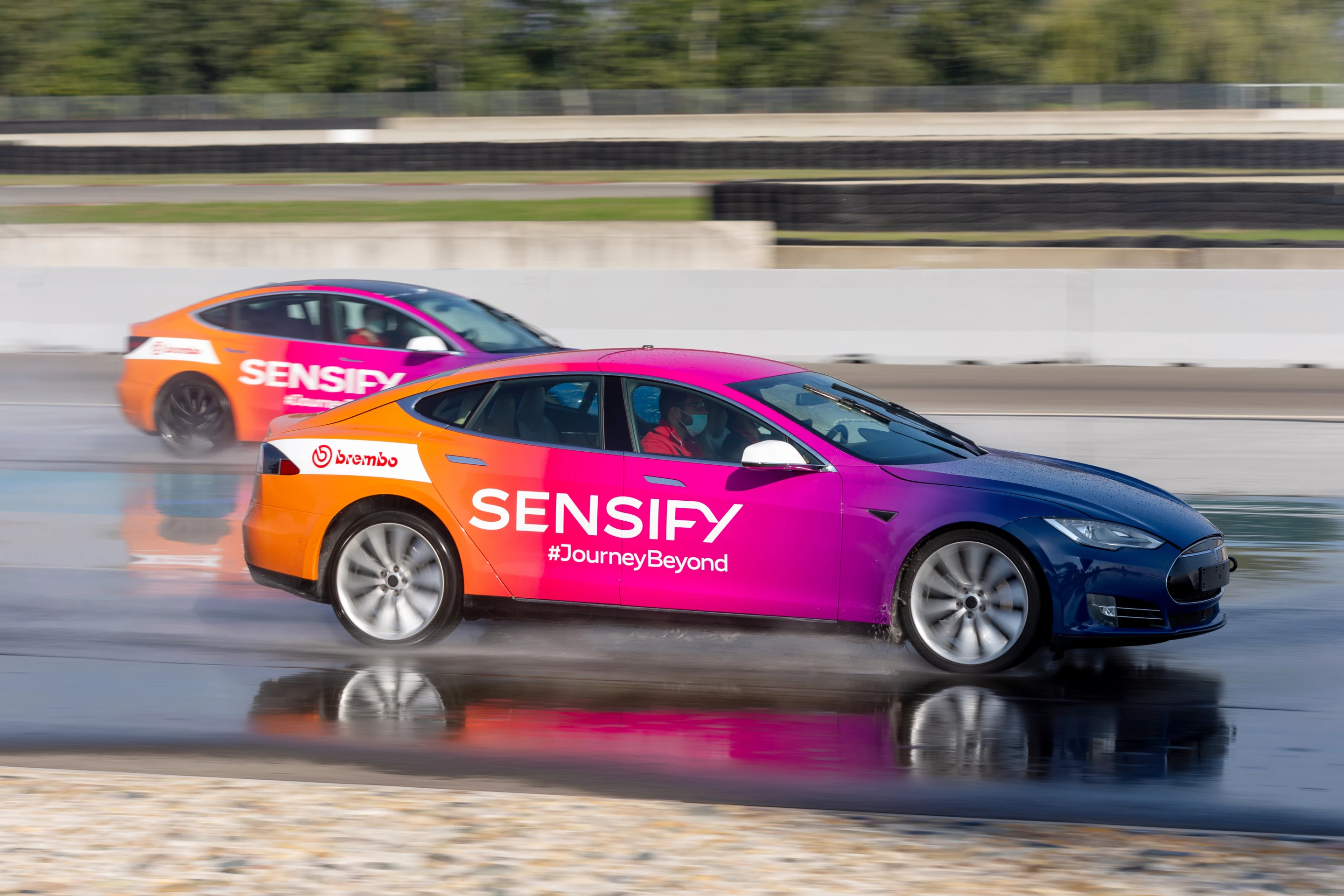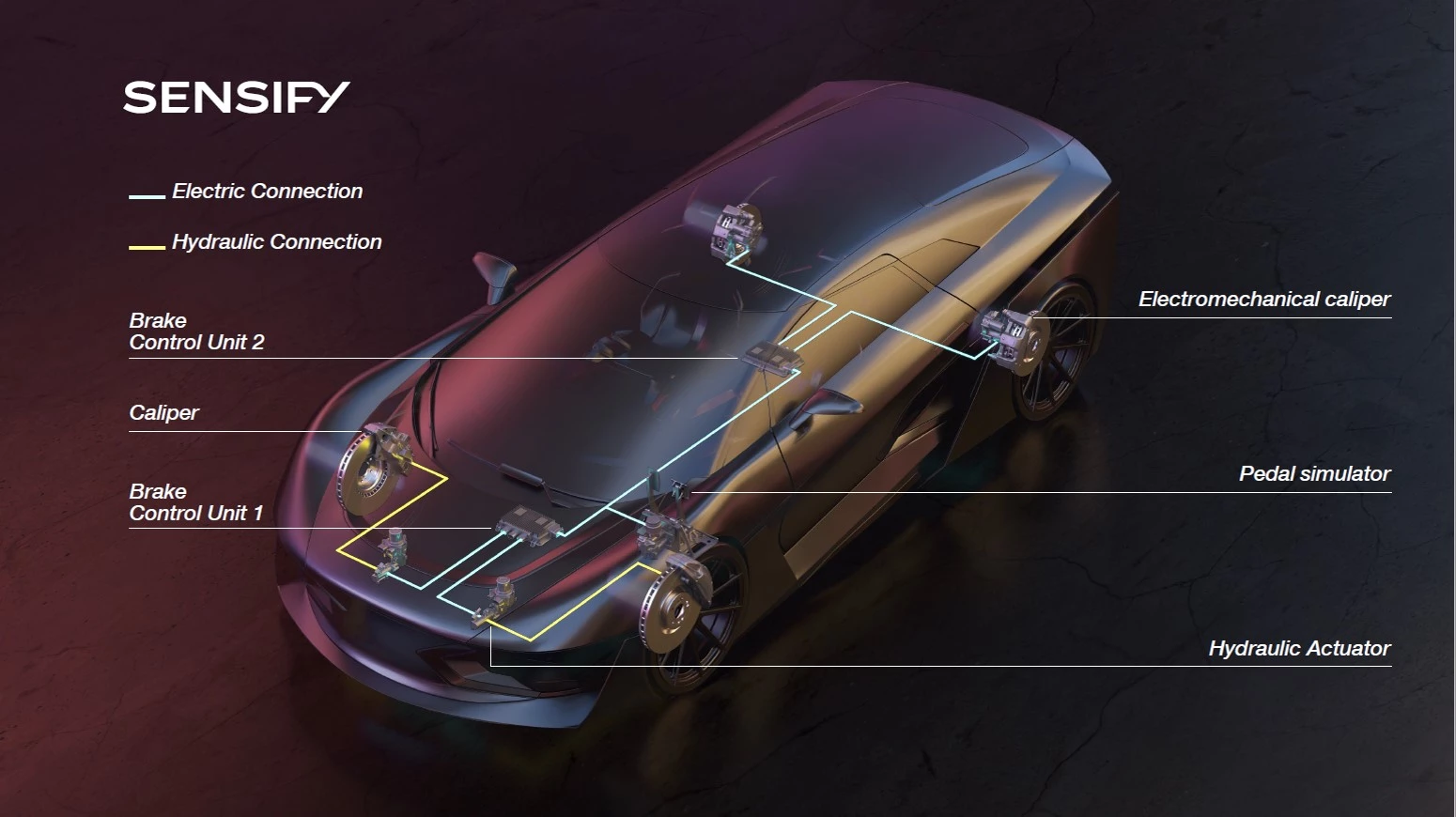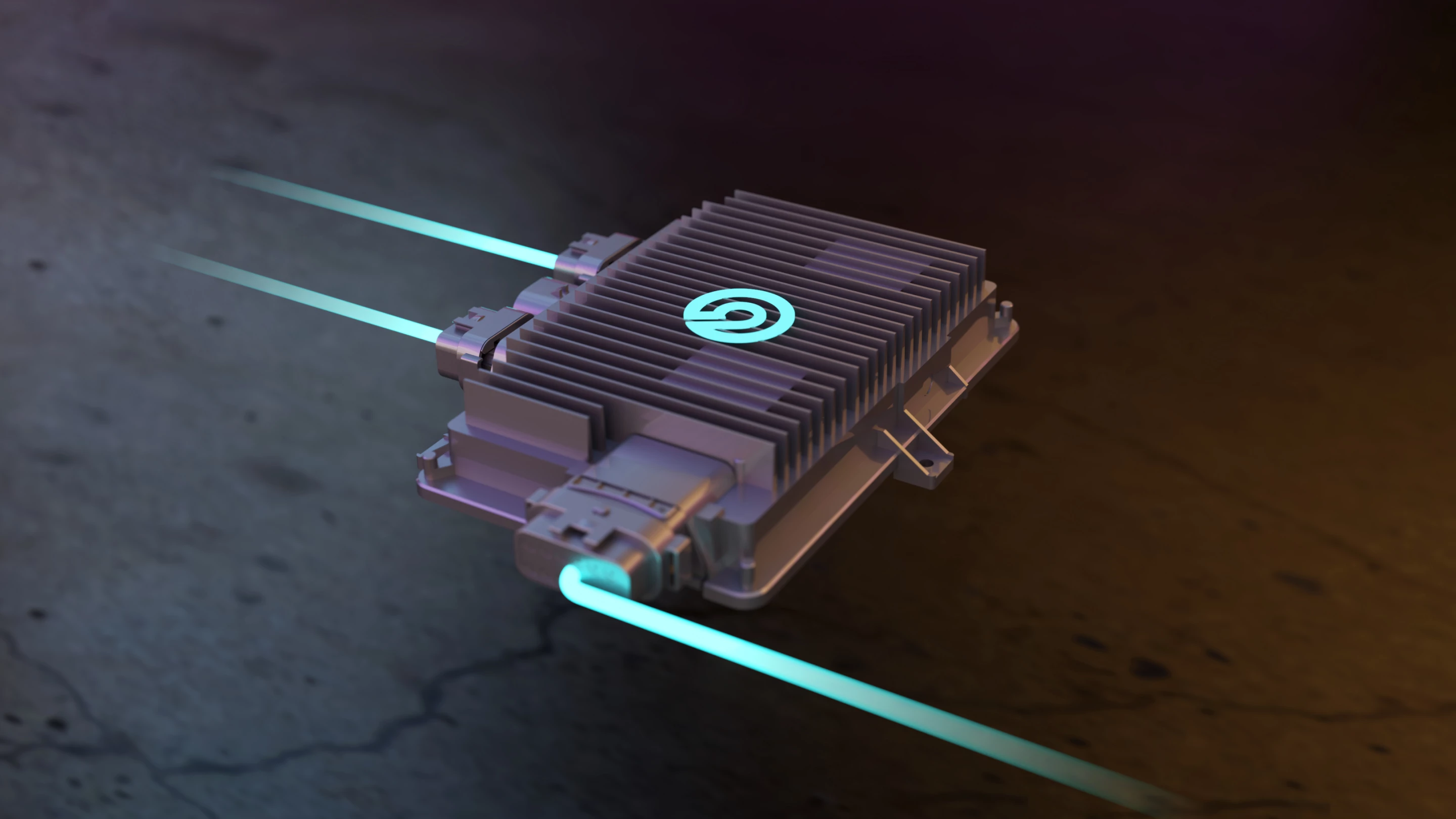Italian company Brembo is well known for its high-end braking systems, which are often used as OEM equipment on premium performance cars and motorcycles. To date, Brembo's mainly focused on mechanical parts like calipers, discs, pads, levers, cylinders and so forth, leaving the ABS intelligence to other suppliers like Bosch and Continental.
This is all about to change. Brembo has announced a new "Sensify" brake system currently under development. The Sensify system removes nearly all the hydraulic components from the brake system, leaving no physical connection between the pedal and the discs, and it has its own digital brains, capable of using AI to determine the correct amount of braking for each wheel under a range of different circumstances.
In doing so, it follows the accelerator pedal in most modern vehicles down the "fly by wire" path; once upon a time, laying into the gas pedal used to physically open butterfly valves in the throttle bodies. Nowadays, sensors on the accelerator pedal provide just one input to a car's ECU, which balances the driver's intentions against a range of other data – from inertial sensors, wheel speed sensors, temperature and pressure sensors and the like – to decide exactly how much to open those butterflies and how much fuel to squirt in.
The Sensify system goes one step further than today's ABS systems, which reduce brake pressure when necessary by opening pressure relief valves in the hydraulics. Sensify's brake control units send their decisions either to hydraulic actuators connected to hydraulic calipers, or straight to electro-mechanical calipers.

Brembo doesn't spell out exactly why or where you'd continue to use hydraulics, but we'd guess that the fully electronic calipers are a little heavier, adding to unsprung weight and negatively affecting suspension performance. Thus, most of the example systems appear to use the hydraulic actuators on all four wheels in the highest-performance applications like race cars, hydraulics at the front and electronics at the rear on high-performance street cars, and electronic calipers on all four wheels for lower-performance city cars and commercial vehicles.
What are the benefits? Well, Brembo promises shorter lockup times under extreme braking, but doesn't specify what they're shorter than. It also makes the nebulous and hard-to-measure claims that the system will deliver "more precise car handling, increased performance and confidence."
Pedal action customization is perhaps more interesting; much like many vehicles now offer different throttle modes, this kind of system will make it trivial to provide different braking maps for different circumstances or driver preferences.
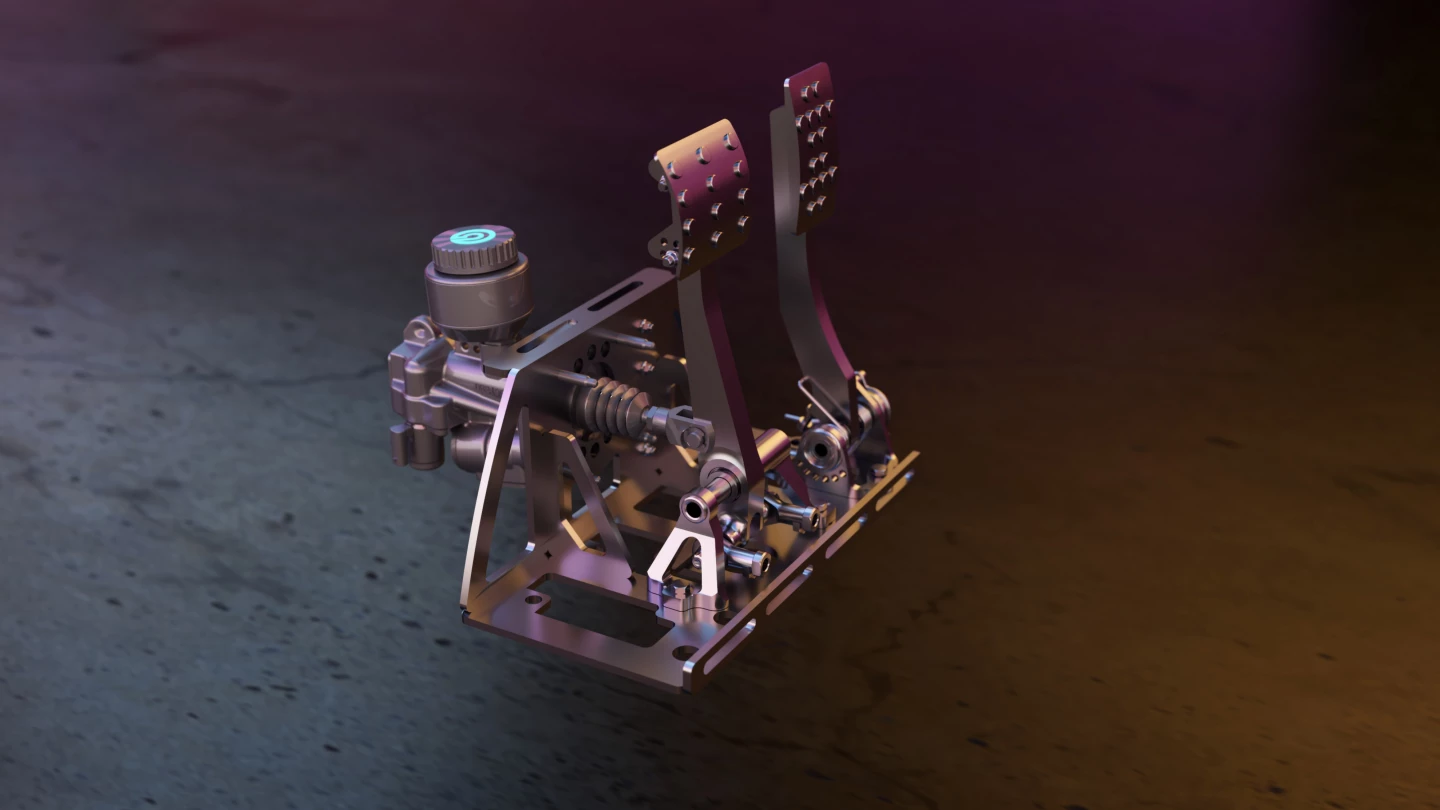
Brembo says the fine level of precision this new system offers will allow the pads to be completely removed from the disc surface when they're not in action. That's significant; it removes drag from the system, potentially offering a tiny boost in vehicle efficiency but also preserving pads and discs longer. Brembo also says it'll cut down on brake dust emissions, as well as maintenance and ownership costs thanks to the reduced use of hydraulic fluid.
Weirdly, the company also implies that the feel of the system will be an improved experience for drivers: "Sensify will allow you to extend your feelings, move beyond your limits and be inspired by a totally new experience." We doubt it; there'll be no direct mechanical feedback through the pedal, for starters. So even if the car's stopping more effectively, we suspect there's going to be a feeling of disconnection from the road surface, similar to the feeling of digital disconnect present in many drive-by-wire throttle systems.
The real significance of Sensify, we'd argue, is its relevance to electric and autonomous vehicles. Autonomous vehicles are already designed to give electronic inputs to a braking system. Making the driver's pedal electronic as well presumably streamlines things from this perspective.
And Sensify can be integrated into a vehicle's regenerative braking system with extreme precision, allowing mode-dependent crossover points between regen and caliper braking systems. Brembo says this'll allow electric vehicles to squeeze more juice out of their regen systems.
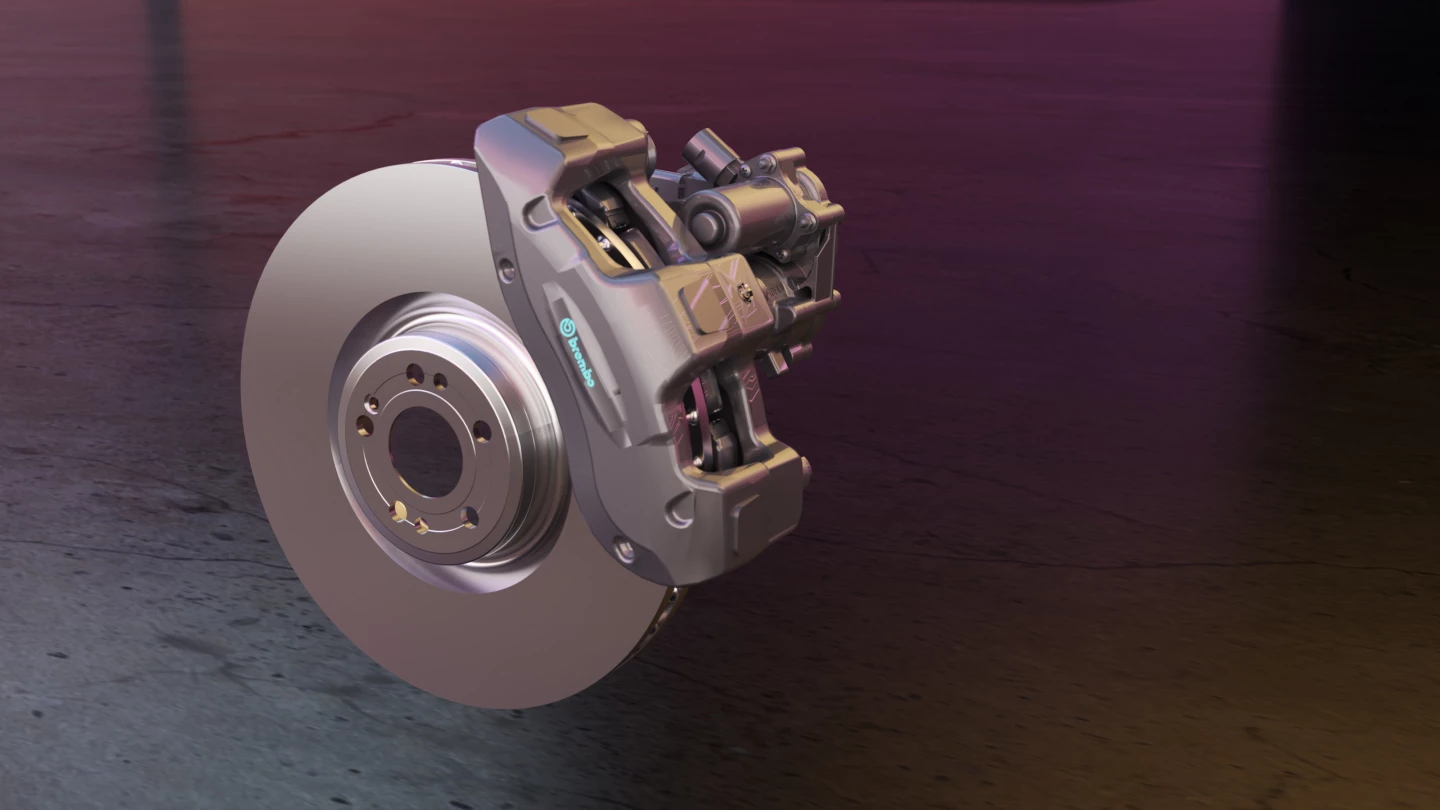
A system like Sensify will potentially give Brembo access to "everything by wire" vehicles, too. Israeli company REE is working on disruptive, super-flat EV platforms that place everything from the electric motor, wheel and brakes to the steering and suspension systems into cleverly integrated "corner units" that can be easily removed and replaced. The only inputs to these units are electronic, so it doesn't matter whether it's a human driver or an autonomous system making the requests.
REE claims its platforms can underpin nearly any kind of vehicle, so while it's currently focusing on trucks and autonomous deliveries, there's definite potential for performance vehicles. Perhaps Brembo will soon be in a position to offer OEMs an electronically actuated braking system for these types of vehicles, maintaining its industry status as a premium option even as the market evolves.
Brembo is currently testing the Sensify system, and expects it to start hitting the market in 2024, offering "great flexibility for car makers ... in any electric and internal combustion engine platform – from super sport to city car and, potentially, to the latest commercial vehicles." There's no mention of motorcycles as yet, but where the auto world goes, the bike world tends to follow within 10 years or so.
Check out a video below, which loses little if you play it back at double speed.
Source: Brembo

